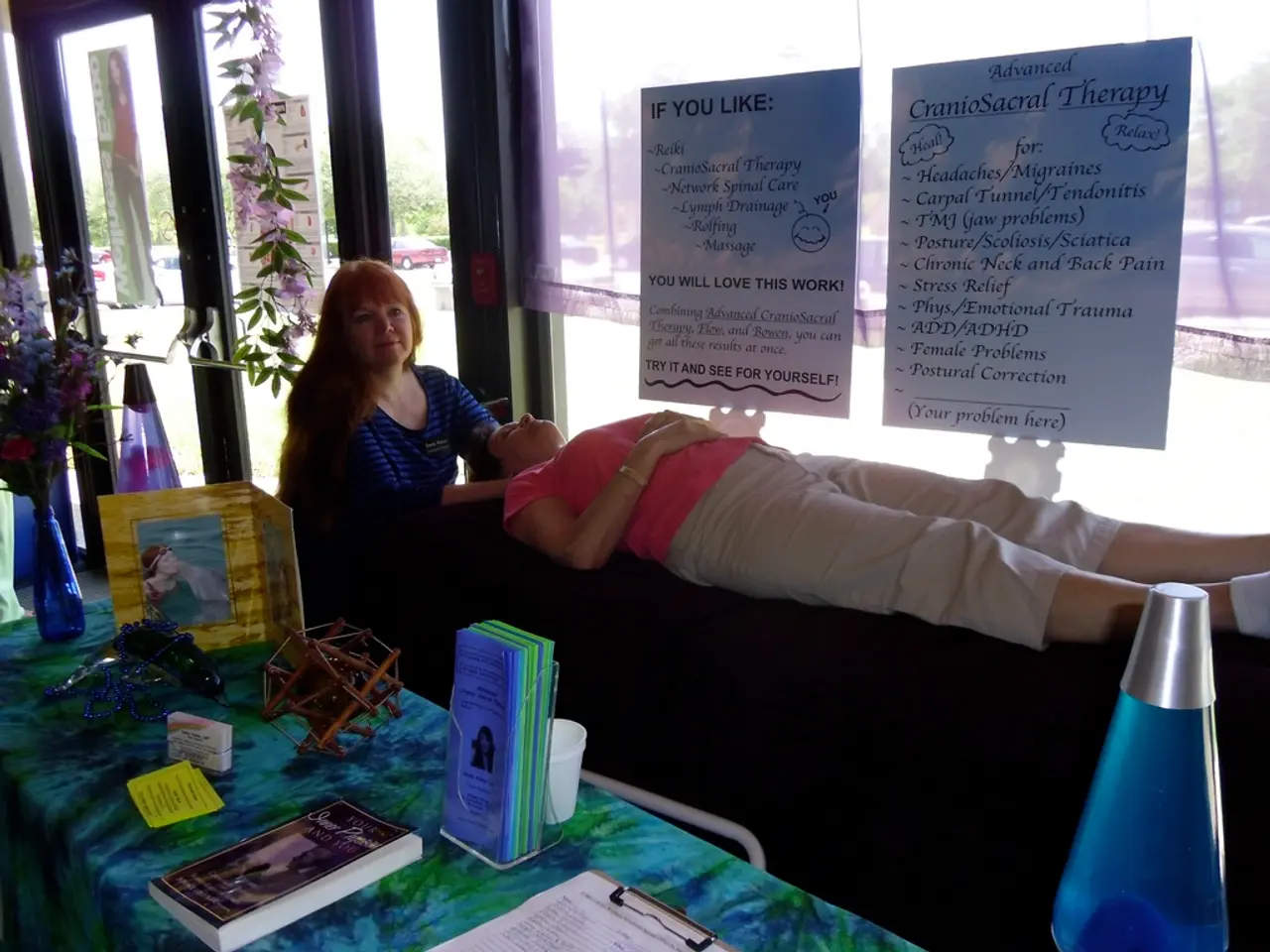ACupressure's Impact on Sleep Quality: Expert Opinions Revealed
Acupressure, a traditional Chinese medicine technique, has emerged as a popular and effective method for improving sleep quality. This non-invasive practice offers several benefits for those struggling with insomnia, sleep disturbances, and other sleep-related issues.
How Acupressure Helps Improve Sleep
Acupressure works by stimulating specific pressure points on the face and body, which encourages the release of mood-enhancing neurotransmitters such as endorphins and serotonin. These neurotransmitters play a key role in regulating sleep. The stimulation also increases parasympathetic nervous activity, promoting a rest-and-digest state that helps the body shift away from stress-related "fight-or-flight" responses.
Key Acupressure Points for Sleep Improvement
Some of the most commonly targeted points for sleep improvement include the "Yintang" (third eye, between the eyebrows) and "Shen Men" (upper ear). These points help relieve stress and calm the mind, reducing anxiety, a common cause of insomnia.
Other key points include "Anmian" (Peaceful Sleep), used specifically for sleep disturbances, helping to ground the nervous system and encourage deeper, more sustained rest. "Sanyinjiao" (SP6 - Spleen 6) supports hormonal regulation and helps harmonize the Spleen, Liver, and Kidney systems, which play key roles in emotional regulation and sleep.
The Impact of Acupressure on Hormone-Related Sleep Problems
Acupressure has been found to impact hormone-related sleep problems by decreasing levels of follicle stimulating hormone (FSH) and increasing levels of oestradiol. This makes acupressure a potentially valuable tool for tackling sleep issues associated with hormonal changes, such as menopause.
Self-Administered Acupressure for Better Sleep
Acupressure is similar in effect to acupuncture but does not involve needles. This makes it an accessible method for self-administration, providing a convenient way to support better sleep. Acupressure wristbands, for example, can be used to stimulate the "Nei Guan" (Pericardium 6) point for sleeplessness and stress.
The Safety and Effectiveness of Acupressure
Acupressure is considered a safe, non-pharmacological approach and may be particularly helpful for those experiencing short-term or chronic insomnia due to stress and anxiety. Research has shown that acupressure can help with sleep, reducing insomnia, improving sleep quality in hospital patients, and contributing to better sleep in menopausal women.
However, it's important to consult a doctor if experiencing pain or a medical condition before starting any new therapy, including acupressure.
The Role of Acupressure in Complementary and Alternative Medicine
Acupressure is considered as 'complimentary and alternative medicine' (CAM) and it is advised by the National Health Service (NHS) in the UK to first see a general practitioner (GP) if you think you may have a health condition before visiting a CAM practitioner.
In summary, acupressure benefits sleep by promoting relaxation, reducing anxiety, calming the mind, and encouraging physiological rest, which collectively help improve sleep quality and duration. With its non-invasive nature, accessibility, and proven effectiveness, acupressure offers a natural, safe, and effective solution for those struggling with sleep issues.
Science has shown that acupressure, a health-and-wellness practice, helps in improving sleep quality by stimulating specific pressure points. This lifestyle choice can also promote better hormone balance, particularly in menopausal women, through the reduction of follicle stimulating hormone (FSH) and an increase in oestradiol levels.




